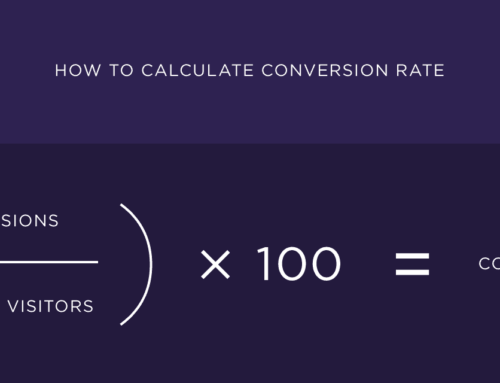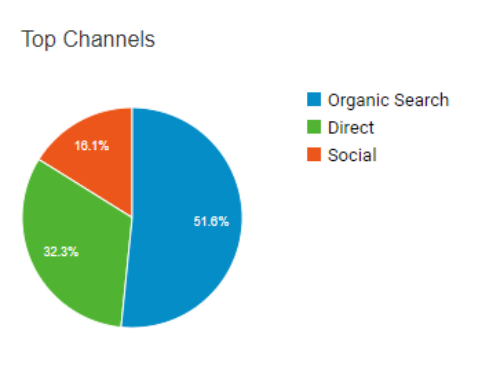What I Learned from Studying 200+ Websites’ Landing Pages

#1. You’re not getting SEO results unless you’re actively doing SEO.
In order to drive SEO results for your website, you need to:
- Do keyword research and identify keywords you want to target (between 100-400 depending on the niche)
- Build your landing pages around these keywords as opposed to the other way around
- Write blog posts (if you’re doing global SEO) targeting the keywords you found
- Optimise your site architecture by doing continuous internal linking
- Build backlinks to your website
And a lot more.
What I’m getting at here is, SEO in 2025 is not something that “just happens” to your website. It’s something you have to work for both actively and deliberately.
That said, moving on to #2:
#2. Not all marketing channels are going to be relevant for your business.
There are dozens of marketing channels you can use these days. Instagram ads, SEO, Google Ads, and so many more.
The thing is, though, that not all of these channels are going to be right for your business or your stage of growth.
For example, a lot of people with very fresh businesses (think, almost no customers) were asking how to do SEO.
Well, the right answer here is that you shouldn’t.
For a new business, the most important thing you need to do is drive customers today, not next year.
Unless you have a lot of capital, your business won’t survive till your SEO kicks in.
In such cases, you’re better off using marketing channels with a more short-term impact, e.g. PPC ads, social media, direct outreach, and so on.
#3. Your website has to build trust.
Way too many websites I studied looked extremely poor.
Why? Because they had almost no information on whom the person/team behind the website was.
Say, I want to work with an estate agency. The first thing I’d do is check out their “About Us” page and see who’s the team running the agency.
And if their “About Us” is just generic copy-paste drivel with no team information, there’s zero chance I’m going to reach out to them.
Want to add legitimacy to YOUR website? Here’s what you can do:
- Add client testimonials. Don’t have any? Go offer your service for free to a business that you think you can help.
- Add an “About Us” page with your team on it. Don’t have a team / are you a solo founder? That’s totally OK — just frame your website copy around a solo founder.
- Add photos of yourself/your team. Your clients want to work with real people — not faceless, nameless websites.
- Be as specific as you can about your services. If you can make the client understand what’s the exact work you’re doing for them, they’re almost as good as sold.
#4. No one cares about your generic e-commerce website.
If I want to order something online, 99% of the cases I’ll just order from Amazon. I know, for a fact, that:
- The delivery will be fast
- The price will be good
- I’m going to get quality support if I need it
Now, if you want me to order from YOUR e-commerce store, you really have to work on your brand.
Why should I order from YOUR website instead of Amazon?
If your site is a list of random drop-shipping products you scraped together, I am not ordering.
If you’re selling random household stuff (which I can get faster from Amazon), I am not ordering.
On the other hand, if your store is built around a type of product line (e.g. you’re selling forged metal sculptures), then that’s something a bit more unusual and interesting.
#5. If you’re in a competitive niche, you have to differentiate your product/service.
I NEVER tell people that they’re in an oversaturated niche. I truly believe that if you’re good at what you do and passionate about your business, you’ll stand out even in a very overcrowded niche.
That said, to make that happen, you need to differentiate your product/service.
Let’s say, for example, you have a crypto/blockchain blog. You won’t be able to compete with big media in terms of how fast/well you cover crypto news. Chances are, you also won’t be able to outrank them on Google (unless you’re going to spend a TON of money on link-building or PR).
So, what can you do to stand out with YOUR blog?
Here are some examples:
- Cover crypto topics in simple English. Most blockchain content is very hard to understand for an outsider. Help solve that problem.
- Cover crypto topics in your native language. Most crypto content on the web is in English, so this could be a good way to niche down.
- Cover niche crypto projects big websites don’t talk about as much.
- Do break-downs of white papers of big projects. Most people don’t want to spend 3 hours reading a white paper, so you could do videos that summarize them.
#6. It’s 2024 – there’s no excuse NOT to write good content.
Around 10, 20 years back, you could maintain a blog audience with subpar content.
Today, literally everyone and their grandma writes blog content. Businesses, freelancers, bloggers, e-commerce stores, agencies, they all have a blog, and they’re all publishing content.
With so much content out there, you really need to create exceptional content in order to stand out.
What’s good content, you might ask?
Well, good content is:
- Well-written and easy to read
- Jam-packed with graphics and images
- Includes examples and case studies
- Well-formatted, 2–4 sentences per paragraph, no blocks of text
- Written with an audience in mind


